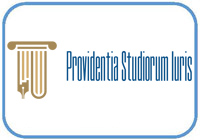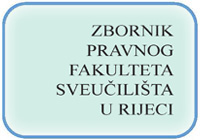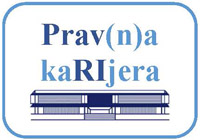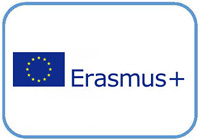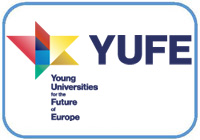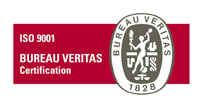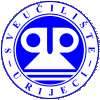Study outcomes, knowledge and skills gained upon the completion of the Study
The programme of this Study covers the entire area of the legal profession and the work of state, judicial and public law entities, but also persons belonging to private law. The Study has been designed so as to enable the students to acquire theoretical and practical knowledge that enable them to conduct activities in the domain of the judiciary, lawyers and notaries, state administration, local and regional self-governments, as legal persons with public authorities, non-governmental organizations, entrepreneurship, etc.
The programme of this Study introduces the students to the basic legal concepts, the organization and functioning of the state and the legal system, as well as to the basic and specific legal questions of different branches of law and the legal system as a whole. The emphasis is on the general or even elementary knowledge (factual and theoretical) and skills (cognitive, social, communication, and psycho-motor skills of learning) that are upgraded with special and specialized knowledge whereby in the Study necessary attention is given to the interdisciplinary knowledge of the students, and which is particularly evident through the courses that are exclusively or partially related to the fields of economics, sociology, foreign language, etc.
Upon graduation,students will have gained general legal competences and will be inclined to connect the general legal competences with the specifics that occur in specific legal areas. Upon the completion of the Study, students will have acquired general and specific synthetic knowledge of organization and functioning of the legal system and the country as a whole, of the public and private legal areas, the role and implementation of normative sources, as well as the judicial and administrative practice, legal principles in solving legal cases, impact of the European law on the domestic legal system. This enables the students to acquire all the necessary knowledge, skills and competences for conducting the work of a holder of a Master’s degree in Law / Lawyer.
After completing this study programme, the student will acquire the following knowledge, skills and competencies:- The student will be able to analyse the forms of functioning of state government from a comparative perspective
- The student will be able to analyse and critically evaluate the constitutional order in the Republic of Croatia
- The student will be able to analyse the positive legal regulations of state administration, local and regional self-government, legal persons vested with public powers and legal persons who perform public service duties in the Republic of Croatia
- The student will be able to explain and analyse the legal regulation of international relations and powers of international and supranational organizations
- The student will be able to explain and compare the basic concepts, principles and sources of individual branches of law
- The student will be able to compare and critically evaluate the basic institutes of substantive law
- The student will be able to compare and critically evaluate the basic institutes of procedural law
- The student will be able to interpret and question the relationship between the norms of European and international law with the national ones
- The student will be able to identify the relevant legal issues and as well as the law applying to concrete facts
- The student will be able to apply the rules of legal procedure as well as conduct procedural actions
- The student will be able to solve a practical problem and support his/her legal opinion with arguments
- The student will be able to draft a legal act by applying the relevant substantive and procedural rules
- The student will be able to define and analyse the role and significance of political, historical, economic and other social factors in the creation and application of law
- The student will be able to compare and analyse the historical development of basic legal institutes as well as identify and critically evaluate them
- The student will be able to analyse the relation of law to other scientific disciplines
- The student will be able to analyse and apply interdisciplinary methods necessary for resolving complex legal issues
- The student will be able to express himself/herself clearly, by supporting his/her arguments and using correct legal terminology both in written and oral form
- The student will be able to conduct legal research and develop conclusions with supporting arguments by using relevant sources
- The student will be able to develop ethical and social responsibility when performing assignments
- The student will be able to plan, organize and conduct legal projects independently and within a team within stated deadlines
Students will be encouraged to take responsibility throughout the Study, and in particular for the obligations in carrying out the tasks undertaken during independent work while solving teaching tasks. Upon the completion of this Study, the students will have gained independence and responsibility according to the learning outcomes at the level of skills in which they will be able to analyse and evaluate, offer solutions to issues of the legal profession and assess the need for additional analysis solutions to problems in the field of the legal profession. Upon completion of this course, the students will have gained (psycho-motor) skills consisting of the use, analysis and application of IT equipment and software in solving tasks from the field of their profession. Upon the completion of this Study, they will have developed social and communication skills, and will be able to provide arguments and propose solutions in the field of the legal profession. Learning skills gained upon completing this Study are independent learning, finding resources for learning and training, and teaching others.
Thus, during the Study, the students’ ability to inform and communicate, the ability of logical and juridical reasoning and written and oral forms of expression are developed. During the Study, the students learn the professional terminology in a foreign language and the basics of computer literacy. Upon the completion of the Study programme, students acquire basic competences to independently perform activities of lawyers. They are trained to perform the following tasks: independent performance of judicial functions in judicial authorities, public prosecution, administrative authorities; independent performance of legal and notary services; independent performance of legal and administrative activities in the state and local governments and self-governments; independent legal activities in economic organizations; independent legal activities in the diplomatic and consular service; performance and conduct of other activities in the economy, state and local government and self-government; engagement in independent research work.





